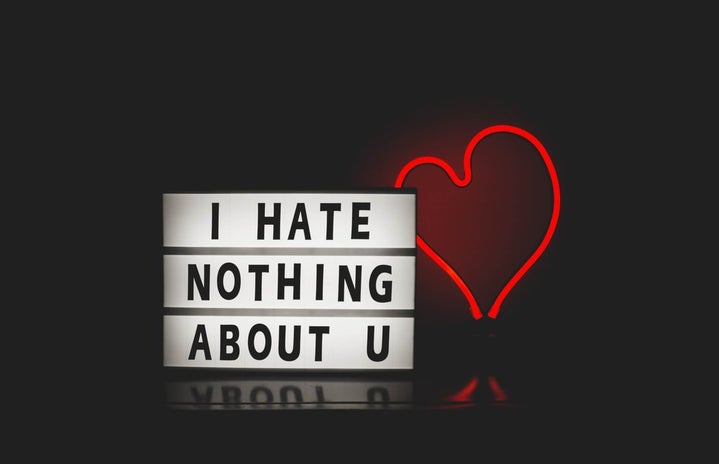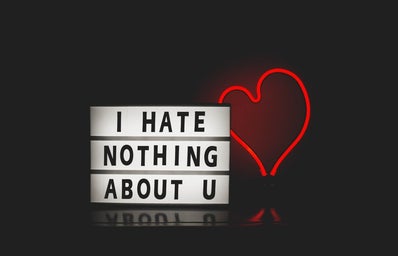Insecurities can be hard at the best of times and debilitating at the worst. It’s one of the most universal feeling in the world to feel self-conscious or insecure about yourself, and yet it still seems difficult for us to manage all the time. It feels like we spent a lot of time telling each other to love ourselves, but nobody ever really goes into the details of how exactly to go about actually doing this. Here are some of the best things I’ve learned to take on board over the years, when trying to handle and overcome your biggest insecurities.
1. Mirrors distort the truth.
Have you ever noticed that you don’t ever look exactly the same whichever mirror you look into? Sometimes, you can get it all right- makeup, hair, outfit, and you leave the house feeling like a million dollars. Next thing you know you’re in the library bathroom thinking:
F*ck is that what I actually look like?
Within an hour, your self-perception can go from confident to cruel. And that’s because mirrors aren’t really a fair portrayal of you. Hear me out. I remember learning about the way mirrors work back in high school physics, and I’m not tying to undermine all the sciency logic behind it, but I’m just saying, even if you go around staring in every shiny thing you pass, you never really see you.
You see posing, or you looking at yourself, and everything about that is completely unnatural. You don’t see you when you’re cracking up at a friend’s joke, or doing something you love, or concentrating on a paper with the slightest furrow in your brow. What you actually see when you look in the mirror, or a camera (especially the iPhone front face camera- that thing should be banned), is just a superficial you.
And when you think about it, that’s probably why it generates the more superficial thoughts. Remember they’re showing a reflection of you, not you as a whole.
2. People see a sweep, and not the specifics.
And that brings me on to my next thing. One of the most helpful things I ever heard when dealing with insecurities was something my best friend told me a while ago. She said that you should think about how when people look at you, what they actually see is a sweep.
Face it, most of us are just that little bit too self-absorbed to actually genuinely take in every feature of another person, because we’re all so preoccupied with how we act and how we look ourselves. So, when someone actually looks at you, remember they’re taking it all in, in once glance. They see y o u. Not the spot on your forehead magnified by a thousand, or whether your stomach looked slightly flatter yesterday because today you’re on your period and you’re bloated. No one really notices these things other than you. I’m sure you’ve heard that before, but the next time you’re feeling self-conscious remind yourself: you don’t go around picking out other people’s flaws do you? And if you don’t, likelihood is neither does anyone else. People really don’t have enough attention span to search for the negatives in each other like that. If someone does look at you that little bit too long, it’s almost certain they’re thinking positive things.
3. There is always going to be something else.
I think everyone has that one thing, that one perceived flaw that if they could just get rid of they would be content. Growing up, I have always been short and I spent so many years convinced that if I could just get a couple extra inches of height everything would be better and I’d be perfectly happy with myself. But the truth is, I wouldn’t be. Because if this did miraculously happen (and it’s looking doubtful), I’d just find something else to dislike about myself- that’s the truth about it. We’re all our own harshest critics.
For me, I think I’ve noticed my relationship with flaws tends to follow a similar cycle:
- First, you notice the flaw, and vaguely register it somewhere in your brain. It stays dormant for a while, and only comes to surface now and then.
- Slowly, you start to notice this flaw more.
- All of a sudden it feels dominant, like it’s all you can see when you look in the mirror, and this is usually the stage where you think it’s what the rest of the world sees too. (Once again- it isn’t.)
- After a while (sometimes an antagonizing period of time), you begin to accept it. Little by little. This step is hard, but it gets easier the more you pay attention to the things you like about yourself instead.
- Eventually, that once big scary flaw, just becomes part of you. Not good or bad, just you.
And then like I said, it tends to come full circle and something new becomes the focus. I feel like a lot of the time we view ourselves as projects; feeling like there must always be something for us to work on, so we aren’t ever fully content. So, like I said try to not focus on your insecurity, by reminding yourself that fixing this one thing about you won’t make you view yourself differently. You have to make that decision to view yourself as more than your flaws first, and the rest will follow later.
4. Think about why you’re feeling the way you’re feeling.
This is what it comes down to. Think about it this way. If one day you notice your house has asbestos and mold growing on the bedroom wall, what do you do? You’re not going to get up and abandon the house in its entirety, nor should you just settle for a lick of paint to cover up the marked patches. That might do for a little while, but eventually it’s going to come seeping back through and before you know it, you’re up there every day on a precarious ladder, painting and painting and painting.
Maybe that’s not the best of metaphors, but you get the gist. Insecurities are kind of the same thing. We all want an easy fix, and lots of the time we’ll try and settle for one, thinking it’s good enough. Satisfied, but not really okay with it. This could be putting more makeup on to compensate or covering up the areas of yourself you don’t like, and whilst there’s nothing wrong with doing any of that at all- it isn’t a permanent solution. You don’t want to live the rest of your life caught up on it, and why should you? To get to the root of the problem, you have to peel back the layers and deal with how you’re feeling about yourself and figure out why you’re feeling it.
Try asking yourself questions, like: when did I first notice that I didn’t like this about myself? What was the first negative experience I had to do with this ‘flaw’? Were other people involved?
Often digging back to why you feel the way you do, can tell you something about how to accept these parts of you. A lot of the time it’s a kind of conditioning or negative experience that has taught you to dislike something about you. In fact, really, most insecurities don’t pop up in someone’s head without a little bit of a push from exterior circumstances.
Insecurities are not born, they’re created.
5. Who would you be without it?
Finally, just sit and think for a minute. Think about what would happen if you were able to wipe away your supposed flaw. Maybe it’s possible, maybe it’s not, but either way, just sit and think about how you’d feel. Would you still feel the same way about yourself, and would you actually still feel like yourself?
Often the parts we don’t like about ourselves are the things that make us stand out, and in reality, it might not actually be such a bad thing at all. If you were to erase what you perceive to be your biggest insecurity, what you might actually be doing is wishing away an aspect of your appearance or you that you would actually miss were it to be different.
Insecurity is almost always a combination of negative experience and negative thoughts and the two together can turn pretty toxic if you don’t know how to put the mirror down. Remember that your exterior is yours; yours to look after, and yours to learn to appreciate, even if that is hard to do sometimes.



